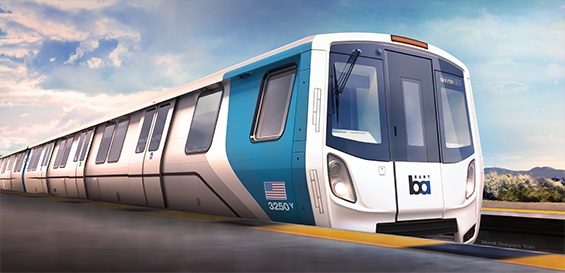To understand the fiscal crisis that BART is facing, you have to go back to the 1950s, when the Bay Area was emerging from World War II. The war had shown local business leaders the power of centralized control and planning; nobody held a public hearing or did an impact report when the War Powers Board built a chromium plant in the East Bay or expanded the Hunters Point Shipyard.
So, as both the Bay Guardian and the late urban planning expert Chester Hartman explained, when the war ended, a small group of men—and yes, they were all men—decided that the best way to plan for future growth in the region was behind closed doors.

Their plans were ambitious: San Francisco was going to be the finance, insurance, real estate and trade capital for the Pacific Rim. That meant developing millions of square feet of highrise office space downtown, mowing down affordable housing South of Market to create a hotel and convention district, building lots of suburban housing on the Peninsula and in the East Bay for the workers—and creating a transit system that would bring those workers to their downtown office jobs.
That was the purpose of BART. It was part of a regional growth plan that would make a few developers and landowners very, very rich, and would have lasting impacts on everyone else in the area.
Nobody seriously considered the notion that San Francisco was creating a monocrop economy, abandoning the port, manufacturing, printing, warehouses, and many other blue-collar industries in the name of making space for offices. The concept of remote work, which specifically would impact the sectors the city approved for expansion (including, later, tech), wasn’t imaginable.
So BART was all about downtown SF. (So was the light-rail Muni Metro system, which was built to bring workers from the neighborhoods to downtown.)
Now the economic model that has driven city planning for more than half a century in San Francisco is collapsing. And so is its transportation instrument, BART, which gets about 75 percent of its funding from the fare box. (The concept, of course, was that commuters would pay for their train rides every day, and the taxpayers, particularly the large landowners, wouldn’t have to kick in much money.)
So what do we do?
Transit planners, business leaders, and state legislators have been meeting and trying to figure that out, but the bottom line is that BART will only continue to exist in anything resembling its current form if some new type of tax is enacted to fund it. From the Chron:
Six more hours of tense deliberation on Monday did not lead to a concrete solution. Instead, committee members voted to send several possible versions of the measure to the commission for further evaluation.
“All revenue mechanisms discussed at the select committee (sales tax, payroll tax, and parcel tax including a hybrid measure) should be explored and polled,” committee members wrote in their resolution, which listed five bullet points they all could agree on. Among them: The region should drum up funding for “all transit agencies to meet their operating deficits.”
So: The same week the Chron reported that nobody can agree on a set of taxes—including a sales tax, which is the most regressive kind of tax you can impose—we got this:
For the upcoming tax year, the top rate of 37% will apply to individuals earning more than $626,350 and married couples filing jointly with incomes exceeding $751,600.
The top marginal federal tax rate for people with very high incomes is 37 percent.
This ought to make us all sick.
It’s not how things worked during the period when the US had the highest economic growth in its history.

This is why we have a funding crisis for public transit, and so many other basic needs.
So why is nobody in the group talking about funding BART and other transit systems not talking about individual and corporate income taxes?
No matter what type of tax might support regional transit, it will need the approval of the state Legislature. No mechanism exists for new regional transit taxes right now.
If the Legislature wants to authorize local government to raise taxes, why not eliminate the state pre-emption on local and regional income taxes?
Why shouldn’t people who make more than $626,000 a year pay more for a functional transit system—and affordable housing, and public schools, and so many other needs that have been devastated by the tax cuts that were implemented under President Ronald Reagan, who most Californians (and certainly most people in the Bay Area) now agree was a terrible president?
New York, Philadelphia, and other big cities have local income taxes. It’s easy to set them in a way that doesn’t hurt working-class people; just exempt the first $50,000 of income, and out the highest burden on the highest earners (who can deduct that from the federal income taxes anyway).
Cities like San Francisco struggle to find fair business taxes, because the state won’t let us tax profit—that is, income—instead of payroll or gross receipts.
I’ve been talking about this for decades. Now, the state Legislature is looking to authorize some kind of new tax authorization for transit. I’m waiting to hear someone in the discussion talk about the most fair, effective form of taxation.
Or maybe we just let regional transit collapse. That doesn’t seem like the best alternative.



